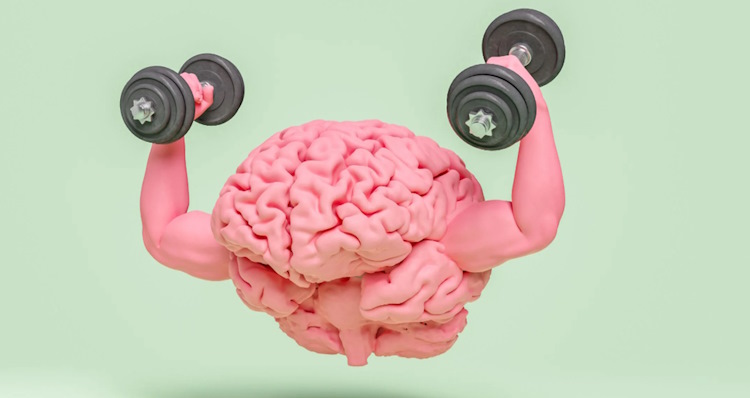Sleep Hygiene – How to get better sleep
Have you ever heard the phrase “muscles are not made in the gym, but in bed”? Sure, you still need to signal your body to grow more muscle – and that’s usually done in the gym, but it’s during sleep that your tissues are able to recover and become stronger and bigger, given a proper nutritional and hormonal environment.
Not only that, but obtaining healthy sleep is important for both your physical and mental health, improving pretty much all aspects of your day, including productivity, performance in and out of the gym and overall quality of life. Everyone, from children to older individuals, can benefit from better sleep, but especially adults who live a busy, stressful modern life full of responsibilities. It’s estimated that, in the United States alone, as many as 70 million people suffer from sleep deprivation.
Sleep hygiene encompasses both environment and habits, with the goal of paving the way for higher-quality sleeping, improved performance and better overall health. If you have a hard time falling asleep, experience frequent sleep disturbances, suffer from daytime sleepiness or simply lack consistency in sleeping quantity or quality, it means you probably have poor sleep hygiene.
Here are some ways you can improve it:
- Set you sleep schedule:
- Have a fixed go-to-bed and wake-up time: regardless of whether it’s a weekday or the weekend, try to wake up at the same time and go to bed at the same time, as a fluctuating schedule makes it harder for your body to adapt;
- Prioritize sleeping: sure, it’s tempting to skip sleep in order to work, study, socialize or exercise, but it’s not worth it in the long run, as your performance and health will only degrade over time;
- Make small adjustments: if you ever need to change your sleeping schedule, do it in 30min to 1h increments, so that you can get adjusted into a new schedule;
- Mind the naps: naps are a handy way to regain energy during the day, but may mess up your sleep at night. Keep them short (up to 45min) and limited to the early afternoon;
- Follow a bedtime routine:
- Keep a consistent routine: simple habits such as putting on your pajamas and brushing your teeth can reinforce your mind that it’s time to shut down and go to sleep;
- Budget some time to wind down: do whatever puts you into a nice relaxed state, including listening to soft music, stretching or reading;
- Dim your lights: bright lights can hinder the production of melatonin, a hormone released to facilitate sleeping;
- Turn down electronics: plan for at least 15 to 30min of device-free time before bed. Cell phones, tablets and laptops can cause mental stimulation which makes it harder to fall asleep;
- Associate the bed with sleeping: it’s good for your mind to associate lying in bed with sleeping, so don’t use it for other activities.
- Cultivate healthy habits:
- Get daylight exposure: sunlight is one of the main drivers of circadian rhythms that encourage quality sleep;
- Be physically active: regular exercise makes it easier to sleep at night and delivers another host of health benefits;
- Control alcohol and smoking: alcohol may make it easier to fall sleep, but as its effects wear off, it will disrupt your sleep later in the night. Nicotine, on the other hand, stimulates the body in ways that make it harder to sleep, that’s why smoking is correlated with numerous sleeping problems;
- Be mindful with the caffeine: caffeine is a powerful stimulant, so try to avoid it later in the day if you want to have a good night of sleep;
- Don’t dine too late: a big, heavy or spicy meal late at night means your body will have to work extra hard to digest, disrupting the quality of your sleep;
- Restrict in-bed activities: leave the bed for sleeping. The exception here is, of course, sex;
- Don’t rely on drugs: as tempting as conventional sleeping pills are, in the long run they will destroy your health and make you dependent in the process. Healthier alternatives such as melatonin supplementation and gamma aminobutyric acid compounds can be used with moderation to help you;
- Optimize your environment:
- Have a comfortable bed: your mattresses, pillows and bedding are critical for you to have a comfortable and pain-free night of sleep, so invest and buy what fits your needs;
- Set a cool, comfortable temperature: the recommended temperature for most people is around 65ºF (or 18ºC), so you can still use a blanket and be comfortable;
- Block lights and noise: use heavy curtains or an eye mask in order to block out the light. For sound, some people like to use ear plugs, but if you don’t find them comfortable, you can try white noise such as a fan or a small water fountain;
- Try calming scents: light scents such as lavender may induce a calmer state of mind that will help with sleeping.
As said before, maintaining a proper sleep hygiene will only do you good, both in and out of the gym. As much as it may seem overwhelming at first glance, incorporating at least some of the habits and environmental aspects shown here can make you sleep like a baby every night and bring your quality of life, as well as your performance, to a whole new level.









